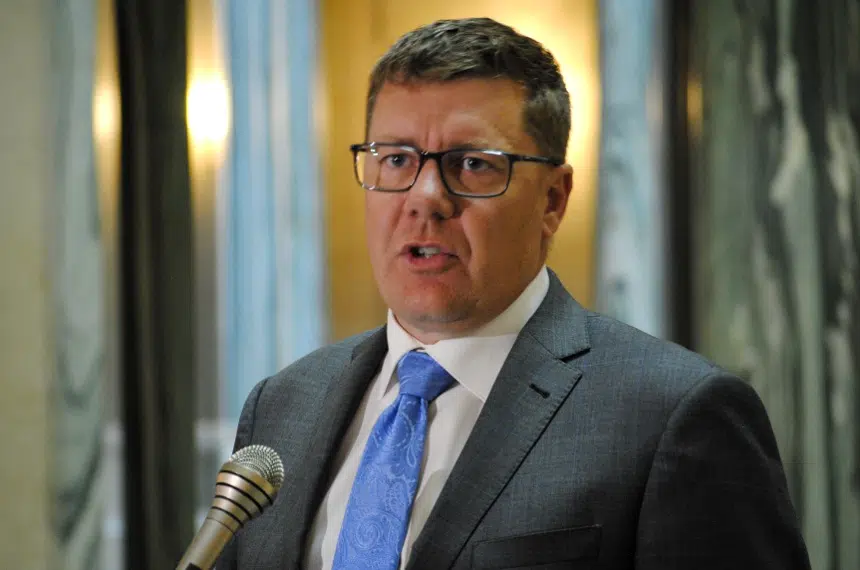Premier Scott Moe says he’s comfortable with current public health orders that do not call for mandatory masks, given low active cases of COVID-19 in Saskatchewan.
But Moe hedged during his appearance on Gormley on Friday, saying chief medical health officer Dr. Saqib Shahab may offer different advice if case numbers change or if there’s a change in the transmission of the virus.
“But given the very steady caseload that we’ve had thus far, we really are feeling pretty confident with the recommendations that we have in place,” Moe said.
There have been instances of anti-mask demonstrations during the pandemic in Canada, including in Saskatoon and Regina.
At a pre-campaign announcement Thursday in Regina, Saskatchewan NDP Leader Ryan Meili was asked what he thought about those events.
Meili said he wanted to see “stronger language” coming from the premier’s office regarding anti-mask groups, which he said are not helpful.
He said Moe has been “late to the game” in recommending mask use.
“We want to see a premier who’s actually going to demonstrate (and) role-model mask use where it’s needed, and strongly discourage anybody who’s out there peddling theories that are against the science and against public health, whether it’s anti-vaccine or anti-mask,” Meili said.
Moe echoed Shahab’s recommendation to wear masks indoors when social distancing isn’t possible, especially as the weather gets cooler.
“Don’t be shy to wear it,” Moe said. “I carry one with me and I’m not shy to wear it if necessary.”
In both Regina and Saskatoon, transit users are required to have face coverings, although service is not being denied to those in Regina who aren’t wearing masks.
Regina city council asked the province to take the lead and pass a uniform mask law across Saskatchewan.
Last month, council considered asking administration to report back on a mandatory mask bylaw for indoor public spaces. Council decided to table the motion, directing staff to consult with the Saskatchewan Health Authority and report back.
Moe on back to school
The premier also talked about testing, saying there’s plenty of capacity to do it and that in high schools, there will be some randomized testing.
“(It’ll be done) to ensure that we are keeping an eye on any potential outbreaks here in the province so that we can take the appropriate action,” Moe said.
Moe said testing is becoming more accessible, with drive-through testing sites opened this week in both big cities, offering testing three times a week.
“Is there a way where we can have some randomized testing, some different testing methods as well where you take some group testing? (We’re discussing) things like that,” he said.
Non-urgent health care
Returning to school is a partial return to normal and Moe said health-care facilities are trending in that direction as well.
At the start of the pandemic, the Saskatchewan Health Authority paused non-urgent and elective surgeries to free up hospital space for an anticipated surge in COVID-19 patients.
Moe said the last report he heard said facilities were back above 75 per cent capacity and diagnostics were up over 90 per cent.
But he acknowledged a backlog exists of patients waiting for procedures.
“We are going to have to endeavour to have a plan to recoup some of the backlog in particular in some of the elective surgeries or the non-urgent surgeries that we have,” he said.







